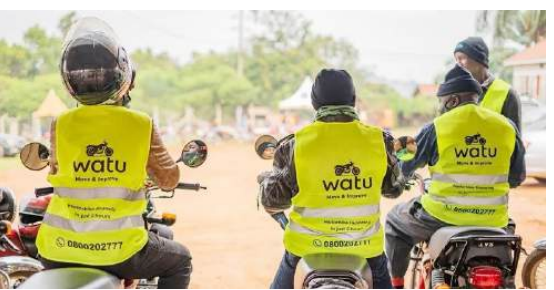Asset financing firm Watu cut its workforce by nearly half in some of its departments as part of a sweeping restructuring linked to a major shift in its business model.
The company scaled down its mobility division which once drove its rapid growth through motorcycle and tuk-tuk loans by 50 per cent between 2023 and 2024.
The decision triggered branch closures and a 60 per cent reduction in recovery teams, resulting in widespread job losses across several African markets, the firm’s 2024 sustainability report shows.
The cuts, described by the company as “ethical” and “responsible,” were triggered in early 2023 when Watu shifted its focus from traditional boda-boda and tuk-tuk lending towards smartphone financing.
Watu insists the transition was handled with dignity, citing full compliance with labour laws, transitional contracts for affected workers and continued medical cover for some employees.
“Watu prioritised the dignity and rights of affected employees, ensuring full compliance with labour laws and ethical practices. For example, some of the retrenched employees were offered six-month transitional contracts as dealer trainers, keeping them engaged while they sought new opportunities” reads the report in part.
The retrenchment came despite 66 per cent growth in revenue, where the firm reported gross earnings of $230.8 million (Sh29.8 billion) in 2024, up from $138.6 million (Sh17.9 billion) in 2023, underscoring its grip on Africa’s informal transport and digital access economy.
“The lessons learned in 2023 informed a more strategic and transparent restructuring in 2024. This second phase was handled with greater sensitivity and clearer communication, resulting in better internal acceptance and minimal reputational impact,” Watu’s sustainability report reads.
The company has identified smartphone financing and electric vehicles as its new growth pillars.
In 2024 alone, Watu financed 1.4 million smartphones, expanding digital access for entrepreneurs and small businesses. It also doubled its electric vehicle portfolio, financing more than 2,000 e-bikes, and has set a target of 5,000 financed EVs by 2025.
The asset financing company admits to facing a string of operational and market challenges in 2024, including declining customer satisfaction and gaps in supplier oversight, but says it is using the setbacks as a springboard for reforms.
In its latest disclosures, the company reported a fall in its customer complaint resolution rates and Net Promoter Scores (NPS), a key metric used to gauge client loyalty signaling weaknesses in its service delivery.
The firm also pointed to wider economic pressures that weighed on wages and procurement practices, requiring what it described as “careful management to maintain fairness and sustainability.”
“These challenges present important opportunities. We are enhancing our customer service frameworks to rebuild satisfaction and trust, strengthening supplier partnerships through clear ESG expectations and capacity building,” the firm says in the report.
Despite the headwinds, Watu says it is rolling out corrective measures. These include overhauling its customer service frameworks to rebuild satisfaction and trust, strengthening supplier partnerships through clear environmental, social and governance (ESG) expectations and investing in capacity-building programs.
The company says it is also accelerating its green financing agenda, with a sharper focus on electric vehicle (EV) financing. According to Watu, this move not only supports climate action but also offers direct value to customers seeking more sustainable mobility options.
by JACKTONE LAWI











